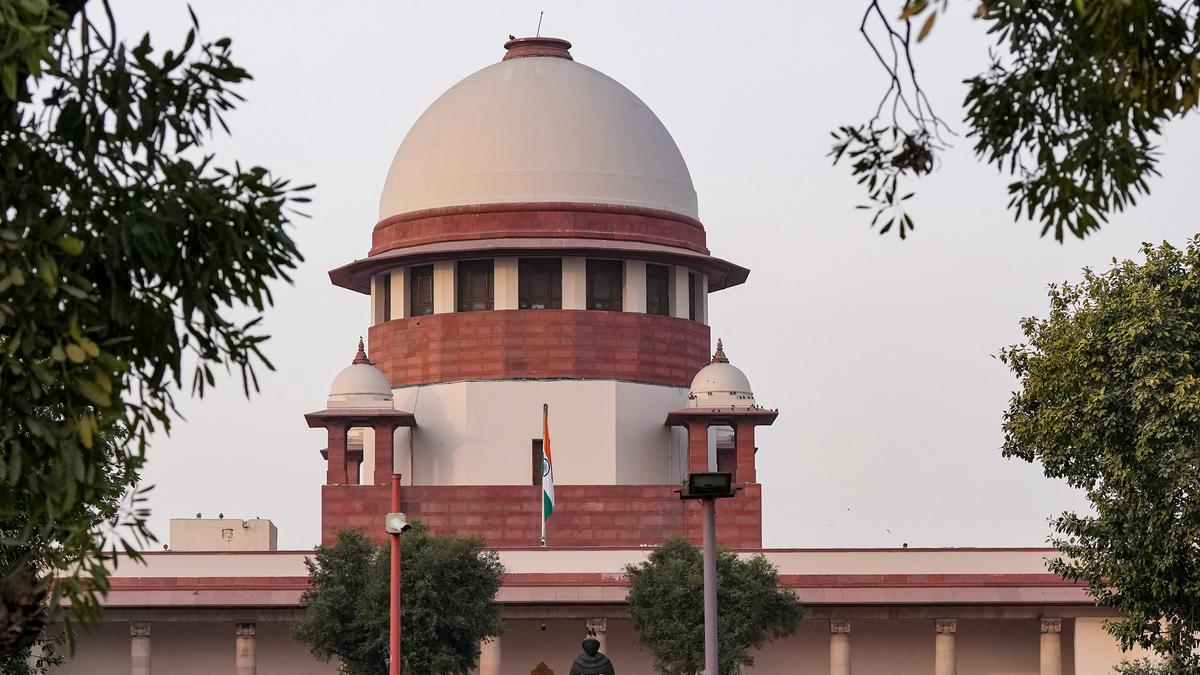- The Supreme Court of India has stated that the issue of men wielding power behind elected women who remain “faceless wives and daughters-in-law” in grassroots politics should be addressed by the government rather than the judiciary.
- The court’s comments came in response to an NGO petition that highlighted the practise of unelected male relatives exercising political power, undermining the spirit of women’s reservation in Panchayati Raj Institutions (PRIs).

Women in PRIs: Legal Aspects
(a) 73rd Constitutional Amendment Act, 1992:
- Women must be reserved at a rate of 33.3% in all PRIs across the country.
- Recognises the Gramme Sabha as the cornerstone of the Panchayat Raj System, authorising it to carry out functions and exercise powers delegated to it by the State Legislatures.
- Some states, such as Andhra Pradesh, Chhattisgarh, Gujarat, Himachal Pradesh, and Bihar, have expanded reservation to 50%.
- 13.74 lakh (45.2%) of the 30.41 lakh elected representatives in PRIs are women.
(b) Article 15(3) of the Constitution:
- Allows the government to create specific accommodations for women.
- Allows the government to implement measures to achieve gender equality and promote women’s interests.
(c) Article 243D:
- Provides for the reservation of one-third of all seats and Chairperson roles in PRIs for women.
- The reserved seats and offices are assigned to distinct constituencies within a Panchayat through rotation.
- Women’s reservations are in addition to Scheduled Castes (SCs) and Scheduled Tribes (STs) reservations in all three levels of PRIs.
(d) Intersectional Reservations:
- Women’s reservations in PRIs are included in the total reservations for Scheduled Castes (SCs) and Scheduled Tribes (STs) in all three levels of PRIs.
- This provision tries to address the multiple disadvantages that women from marginalised communities confront.
(e) Proposed 110th Constitution Amendment Bill:
- In 2009, the Lok Sabha passed legislation to provide around 50% reservation for women in Panchayats across all states.
- The bill sought to increase the reservation percentage above the current 33.3% mandated by the 73rd Amendment Act.
- Despite several attempts to table it, the bill was not passed into law.
Sarpanchs by proxy in India
- It is common practise for an elected lady Sarpanch (the head of a Panchayat) to transfer their rights and responsibilities to someone else, usually a family member or a trusted individual.
- This proxy subsequently acts as the Sarpanch’s representative or substitute in carrying out their duties.
Women are frequently coerced into granting this delegation
- Undermining Women’s Representation Issues: Women’s representation in Panchayat politics might be disproportionately influenced by proxy Sarpanches.
- Credit-mongering issues: This weakens women’s political campaigning gains and limits their ability to directly wield power and decision-making authority.
- Reinforcement of Gender assumptions: Appointing proxy Sarpanchs might maintain traditional gender norms and reinforce assumptions that women are not capable or appropriate for positions of leadership.
- Exclusion from Decision-Making: When a proxy is appointed, the elected woman Sarpanch is frequently sidelined, denying her the ability to actively engage in decision-making procedures.
- Impacts policy gender-sensitivity: Proxy Sarpanchs may lack understanding of women’s specific needs and difficulties, resulting in policies and programmes that fail to effectively address gender-related concerns.
The petition sparked some concerns
- Men acting as proxies for elected women, according to the NGO, is a mockery of constitutional democracy, notwithstanding the provision for a one-third reservation for women.
- Cultural Barriers and Socioeconomic Empowerment: The amendment aims to break down cultural barriers and enhance women’s socioeconomic conditions through grassroots representative democracy.
The Court’s Reaction
- Not an Executive Authority: While the court acknowledged the issue, it emphasised that it is not the judiciary’s responsibility to foster a sense of empowerment.
- Focus on women’s empowerment: The court stated that it is not possible to prevent important individuals’ wives from running for office, and that empowering women requires an evolutionary process.
- The court emphasised that the Ministry of Panchayati Raj should address the petitioner’s complaint and investigate better procedures to implement the objectives of women’s reservation.
- Expert Committee and Support Mechanism: The petitioner proposed the formation of an expert committee as well as the establishment of an appropriate support mechanism for women. The court, however, found this an unrealistic expectation of the judiciary.
The way forward
- Recruit Men as Allies: Encourage male supporters of women’s representation in PRIs. Encourage males to actively advocate for gender equality, to question patriarchal practises, and to contribute to the creation of a more inclusive and equitable political climate.
- Capacity Building and Leadership Development: Provide women elected representatives in PRIs with training and capacity-building programmes.
- Political Awareness and Participation: Run awareness programmes to educate women about their rights, the importance of political participation, and the consequences of participating in PRIs.
- Inter-Gender discussions: Hold intergenerational discussions to allow elder leaders and women to share their knowledge, experiences, and opinions. This can assist bridge the generation gap, encourage intergenerational collaboration, and boost women’s collective influence in PRIs.
Source: https://www.thehindu.com/news/national/supreme-court-asks-ngo-to-move-govt-against-sarpanch-patism/article67048843.ece
